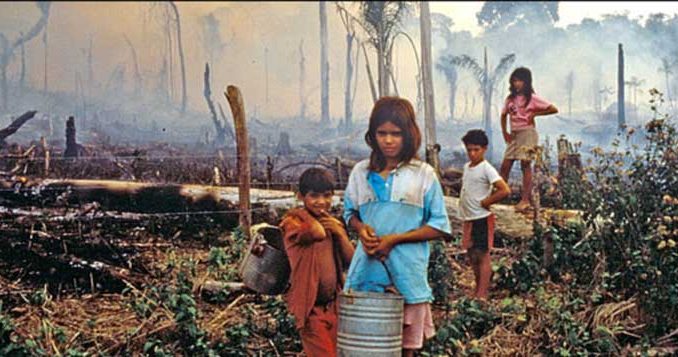
Amnesty International say children as young as eight are being used in Indonesia to produce palm oil found in popular household products. It also alleges that children are working in “hazardous” conditions.
Among those linked to Singapore-based company Wilmar are Unilever, Colgate-Palmolive, Kellogg’s and Nestle. Wilmar said it was carrying out an “assessment” of the findings.
Amnesty researchers investigated the working conditions at plantations in the regions of Kalimantan and Sumatra. It found that the palm oil produced at the sites for the company Wilmar had been sold on to manufacturers that produce items ranging from toothpaste and cosmetics to ice-cream.
Amnesty senior investigator, Meghna Abraham, said the report, “will shock any consumer who thinks they are making ethical choices when selecting products that claim to use sustainable palm oil. Something is wrong when nine companies turning over a combined revenue of $325bn in 2015 are unable to do something about the atrocious treatment of palm oil workers.”
The report details children aged between eight and 14 carrying out physical labour on plantations in Indonesia without safety equipment in areas exposed to pesticides. Some of the children had dropped out of school to work with parents, while others worked in the afternoons, at weekends and during holidays. Its investigation had found that some plantation workers were earning as little as $2.50 a day.
Wilmar responded saying it had already been carrying out an “internal assessment” of its supply practices before being approached by Amnesty.
Amnesty said that seven of the nine companies mentioned in the report had admitted that they bought palm oil through Wilmar’s Indonesian operations:
Peter Frankental, Amnesty’s business and human rights programme director, said human rights abuses linked to any supply chain should result in a product being viewed as “defective”.
“Using mealy-mouthed excuses about ‘traceability’ is a total cop-out from these companies,” he said. “You can be sure that if one these companies’ products were contaminated and had to be taken off the shelves of supermarkets, they would ensure that they could trace the source to specific plantations.”





Be the first to comment